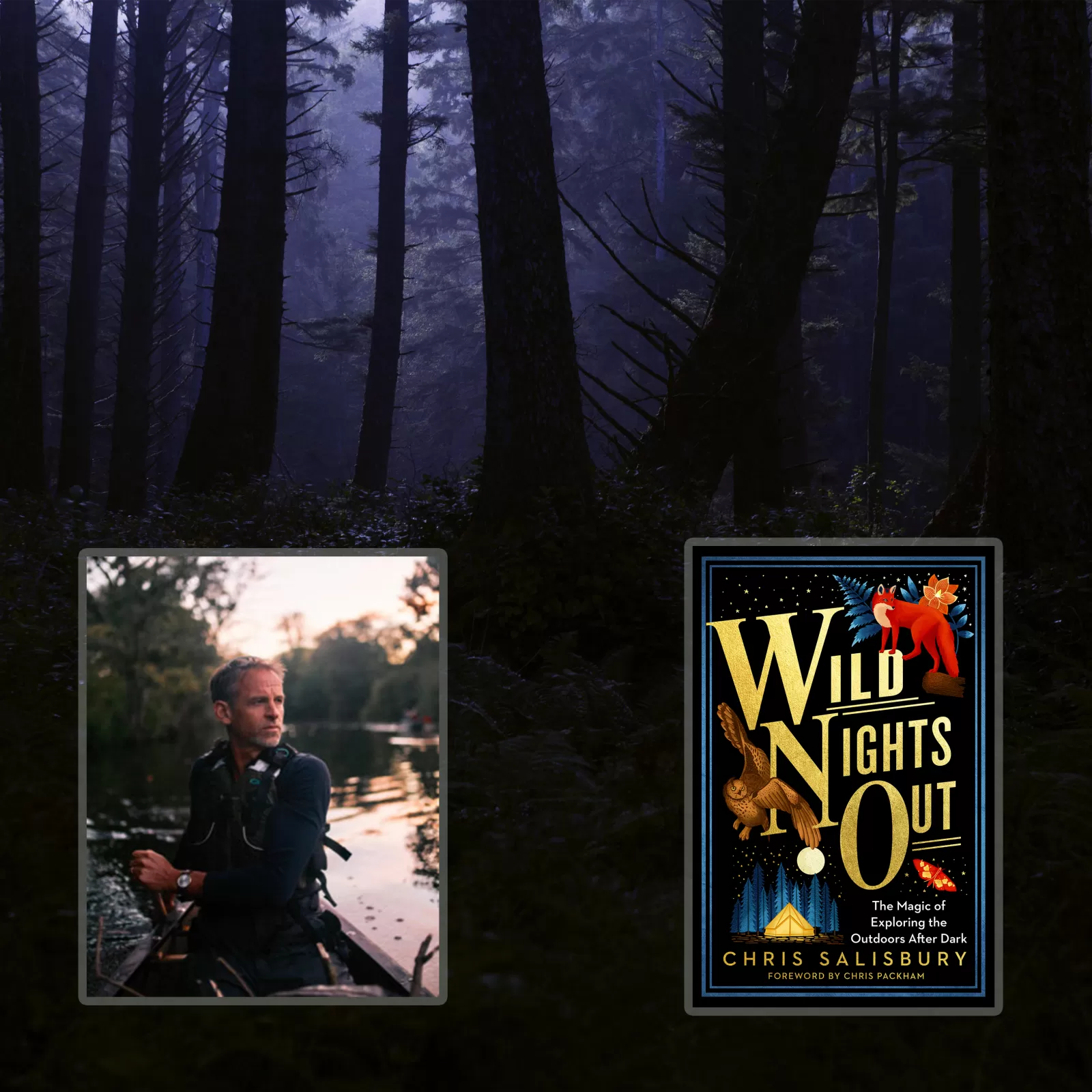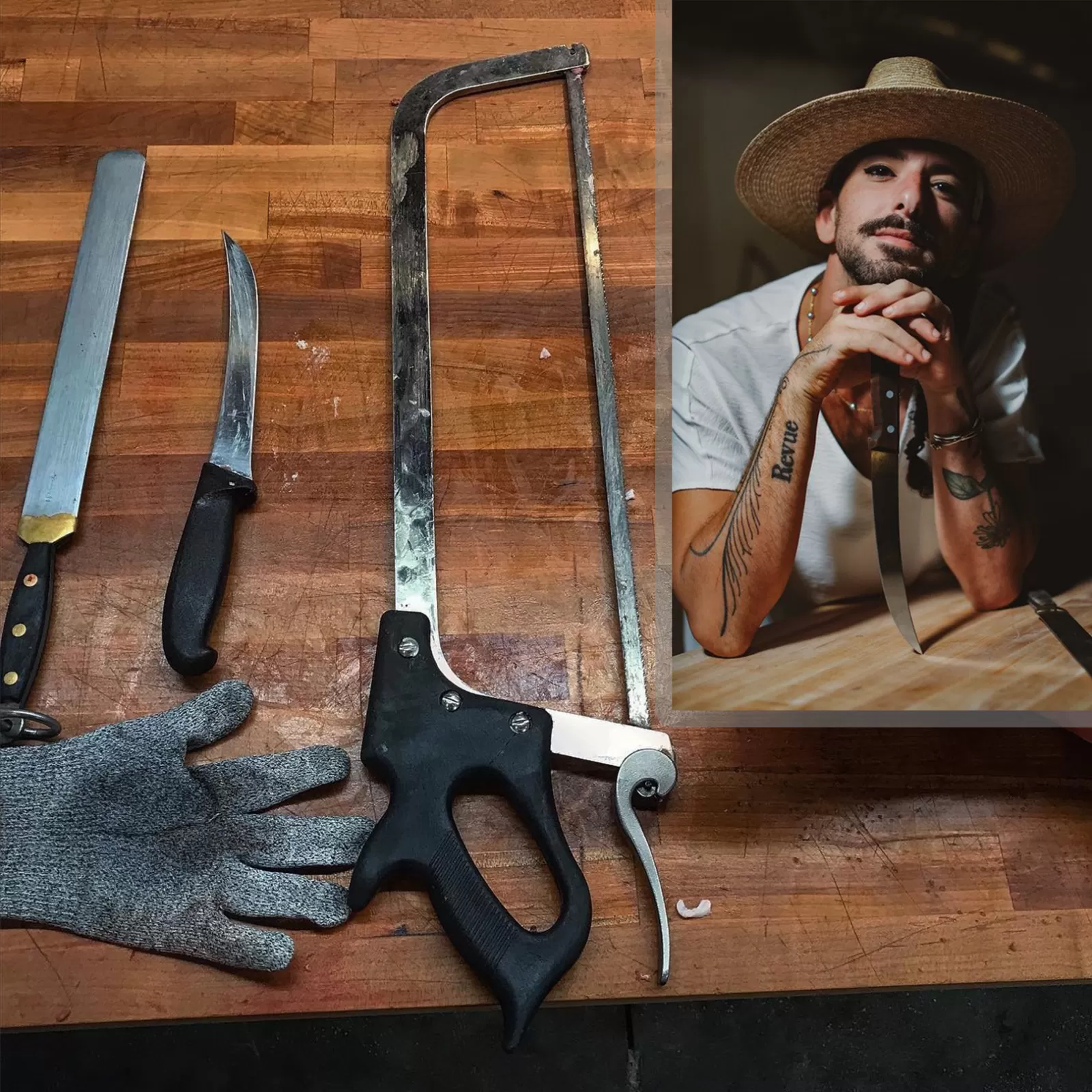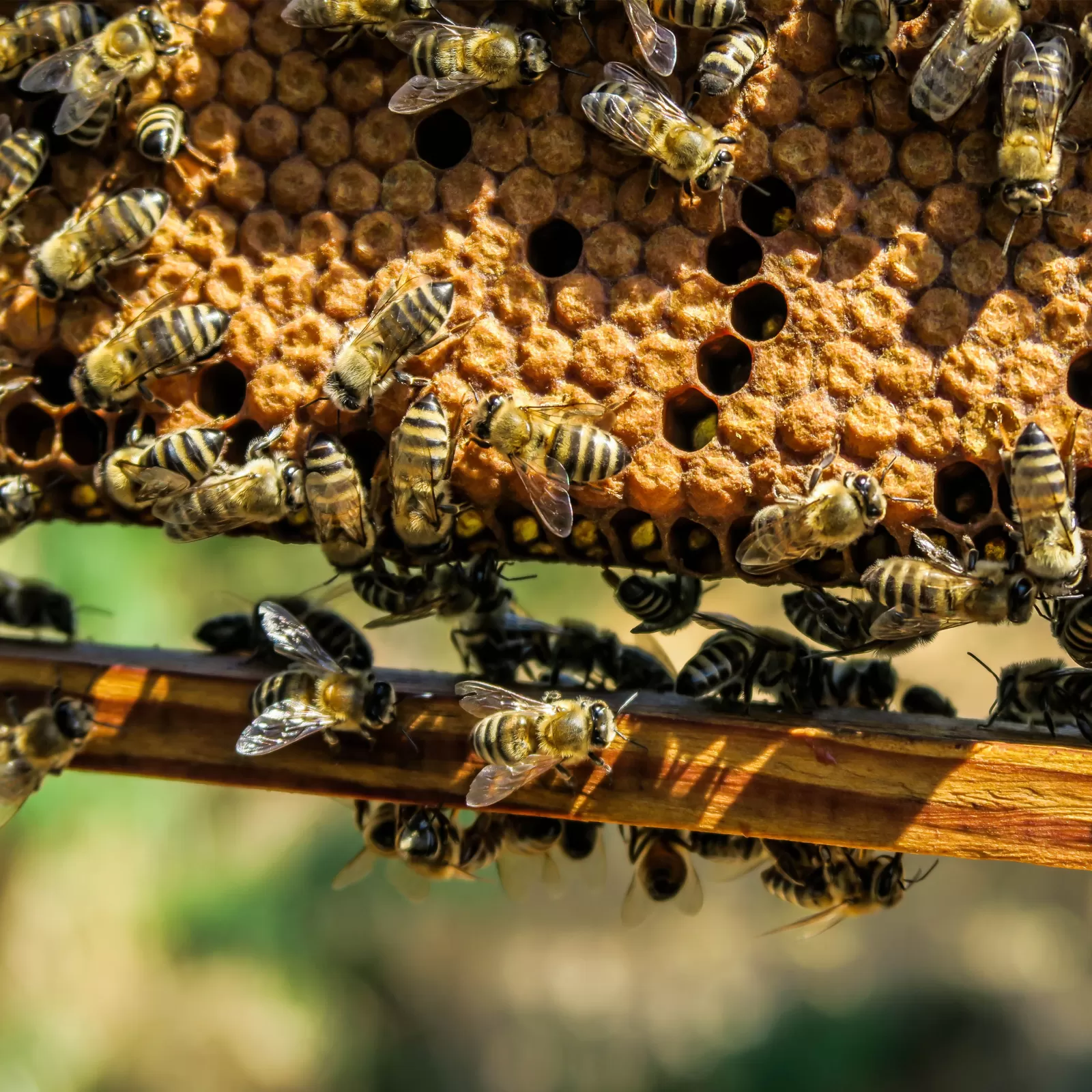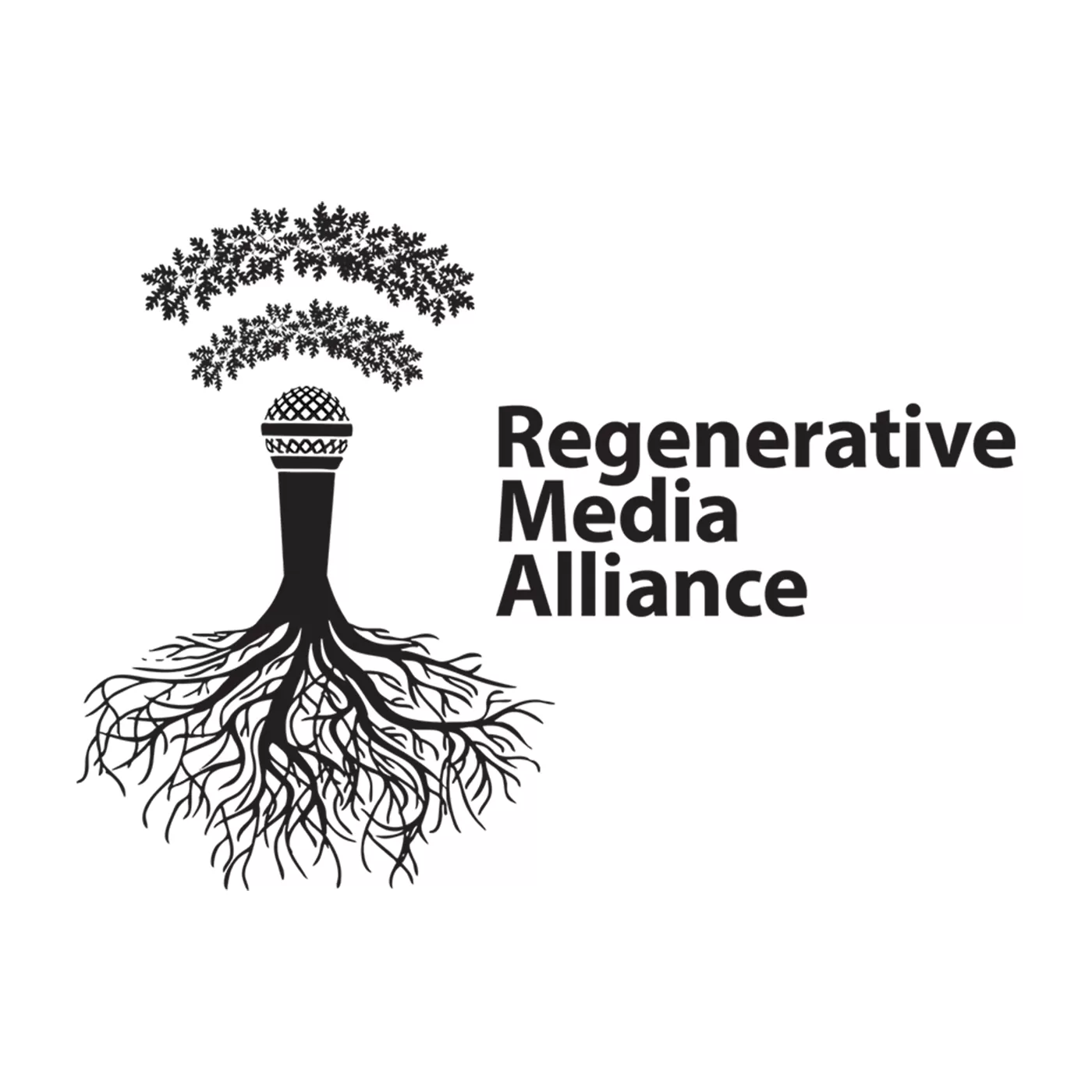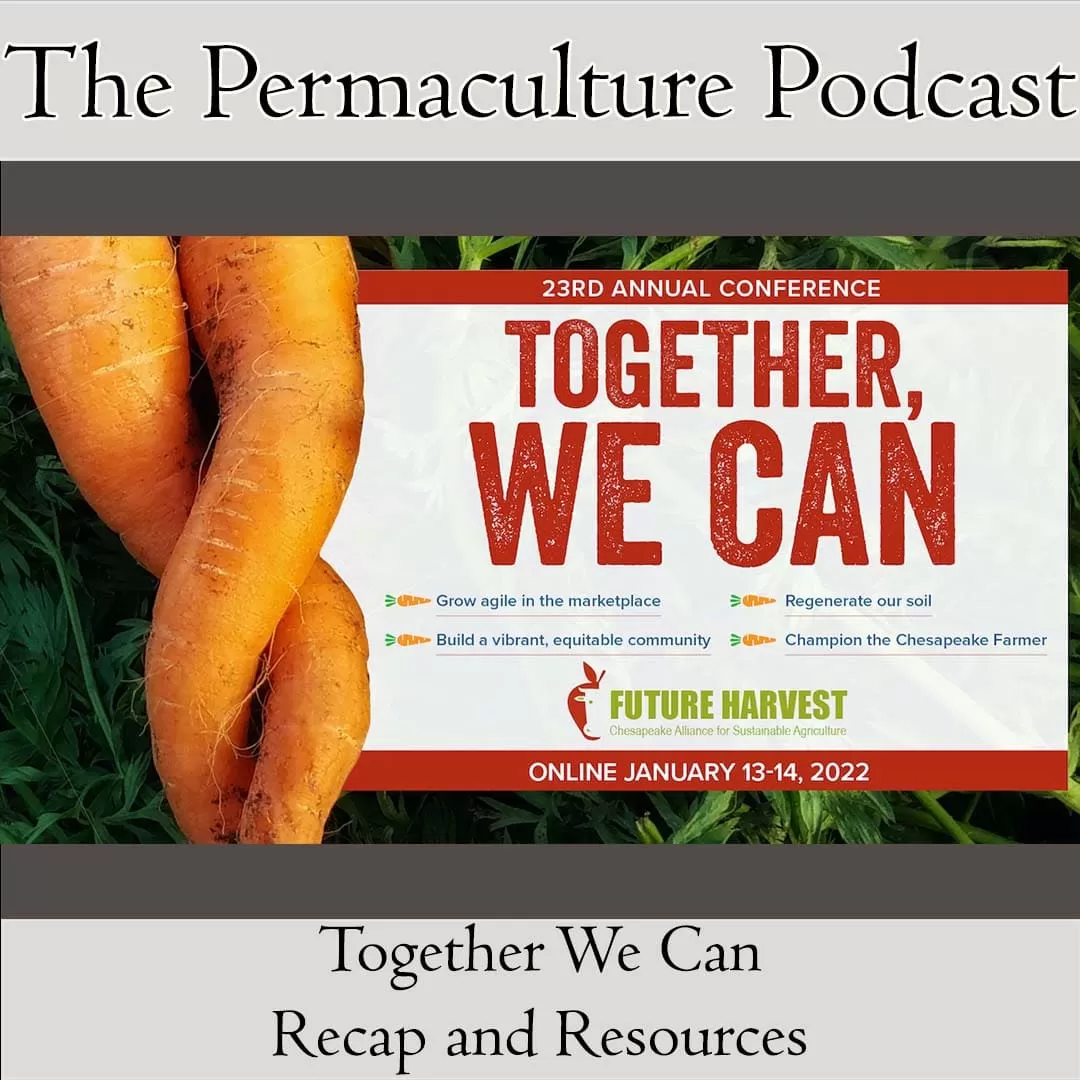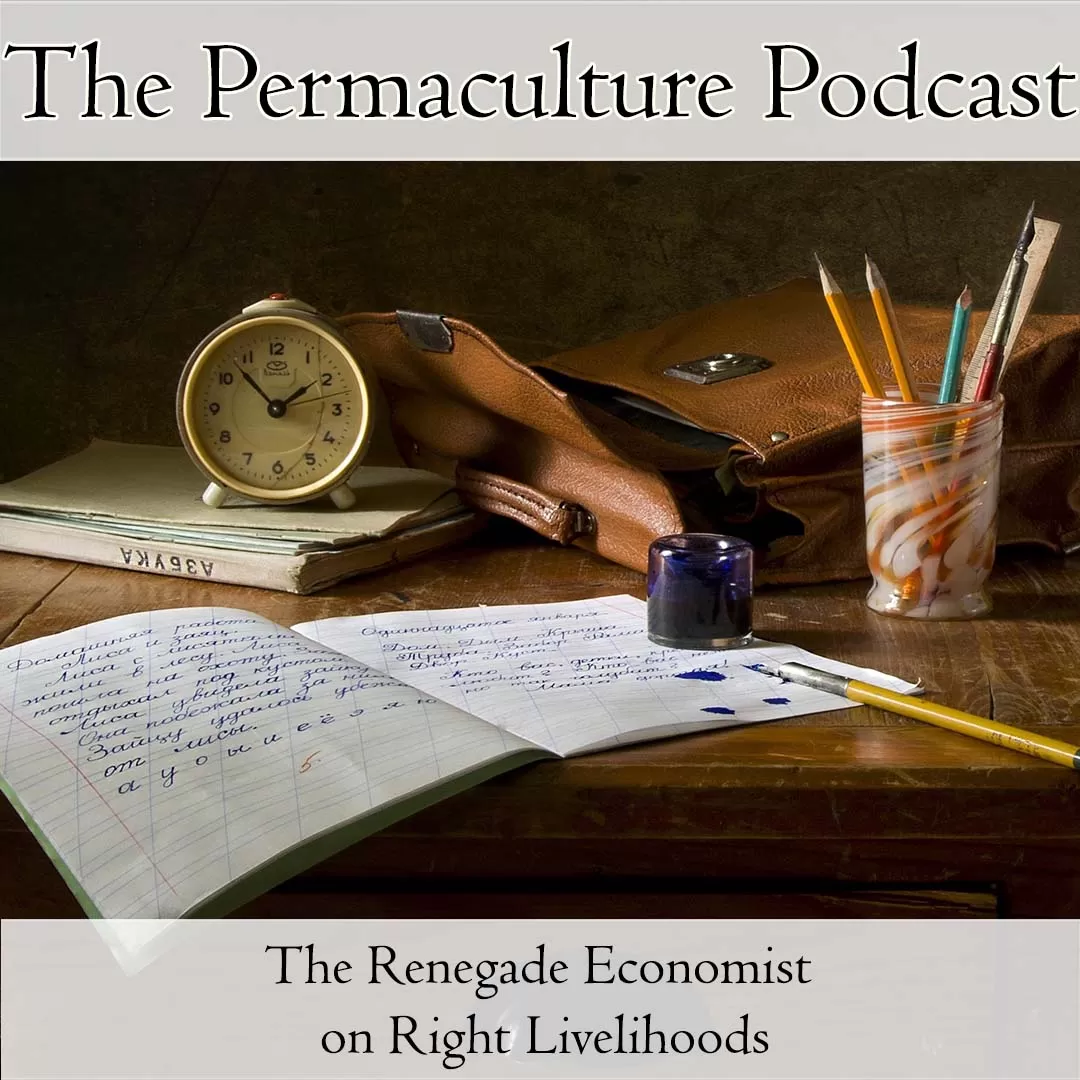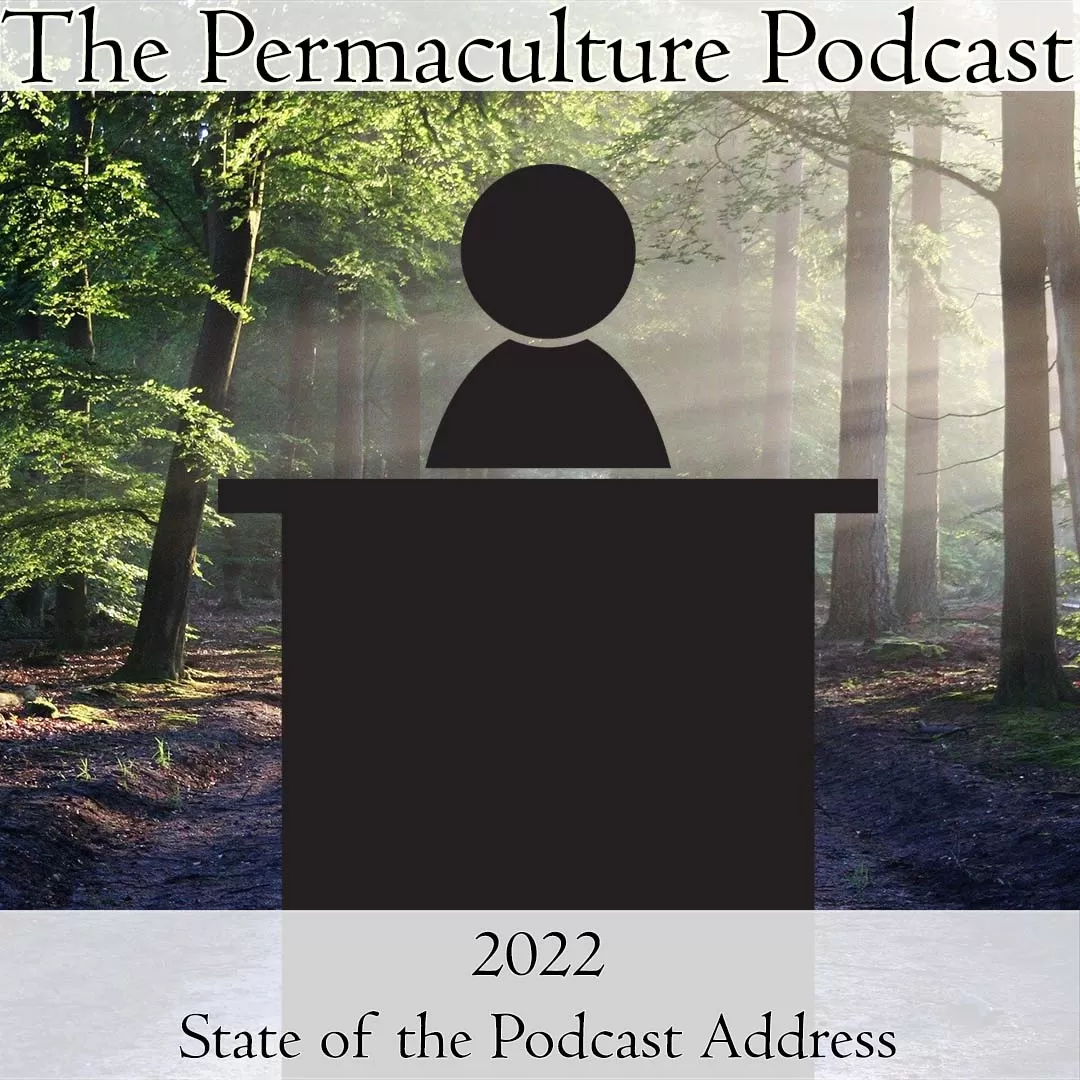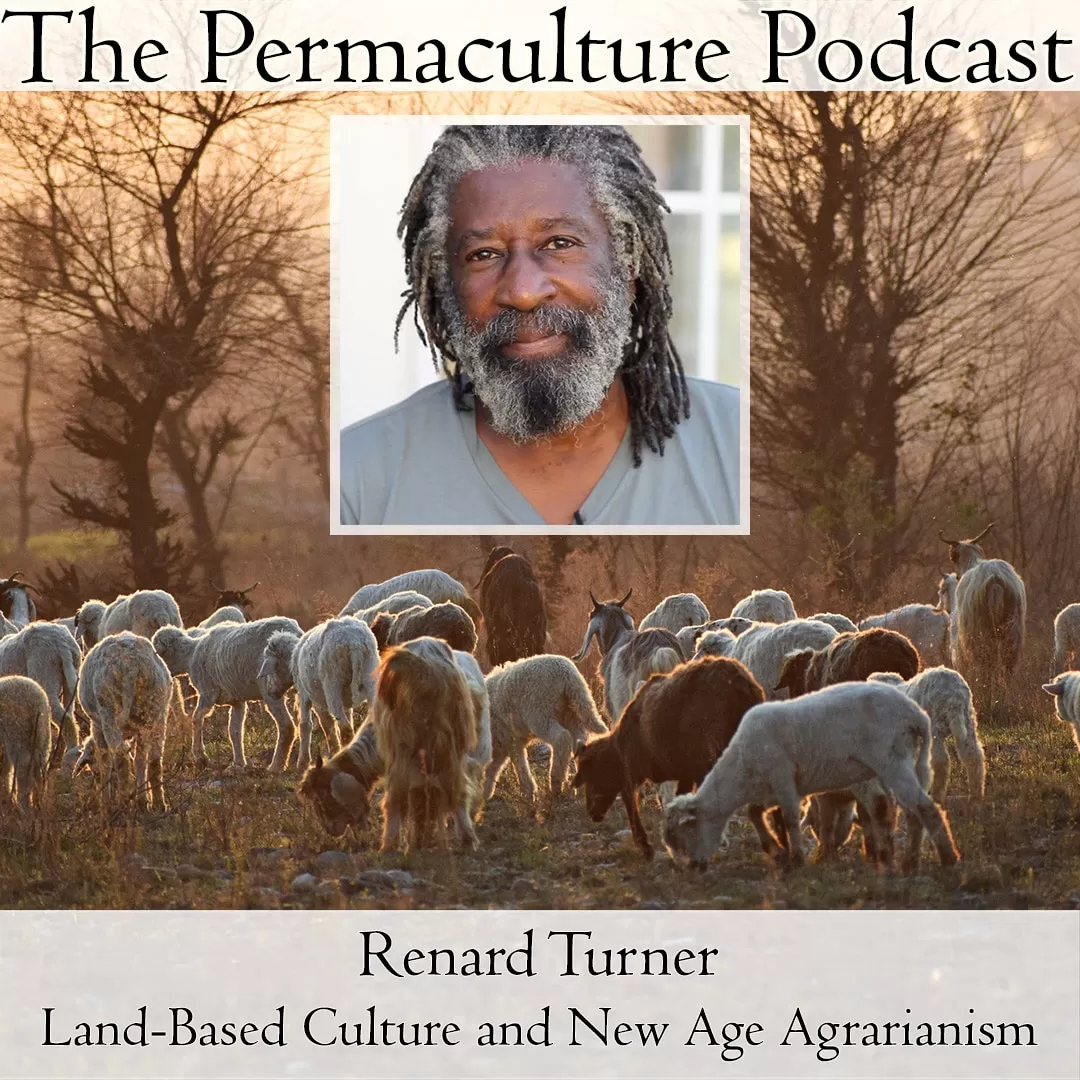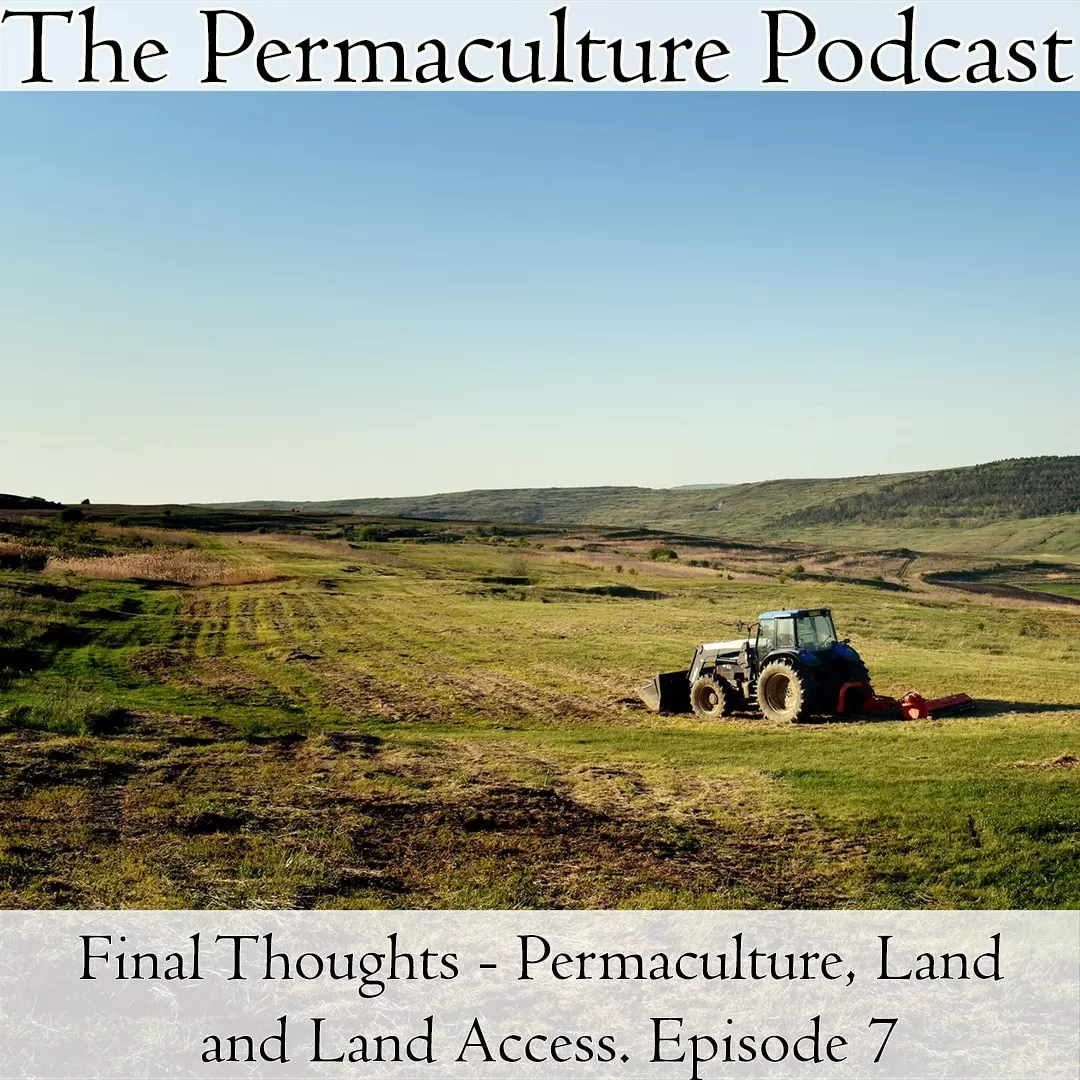Jesse
For me, the conversation with Jesse Frost spoke to the realities of what it means to be a farmer on a small site. That you can make this work on a little piece of land, but that it takes training ahead of time and figuring out your particular approach. Knowing where you want to be and how that can impact what you’re going to sell in order to maximize the profits of your labor while tending and building the soil. If you want to follow a similar path to Jesse, you may need to relocate to have access to a piece of land or the right markets. I also appreciate his candor that even though he had years of experience, it still took time to get things right, and he continues to learn and adapt.
I also enjoyed the idea of having aspirational goals, such as his example of reducing plastic, or my own of producing an interview of the same caliber and quality as Terri Gross of Fresh Air. We may not be able to attain that at the moment, or ever, but we can still continue to work in that direction.
Then there were Jesse’s thoughts on land access. That leasing may be the right option, as well as finding partners and working together. There was a time I was looking at leasing land from a friend’s family to grow on, or there is my friend Erin Harvey of The Kale Yard, who started on a half-acre leased from some people she knew. There was also a time when Wilson Alvarez, now of The Reintegration Project, ran a garden installation and maintenance company where he traded part of his labor for a share of the garden harvest to sell or use at his home.
Sarah
From Sarah Mock, the realities she shared into the wealth, resources, and capital available for farmers, farms, and farming was like having the veil ripped-off of my understanding of farming. That the people we call farmers are often not, in reality, the actual farmers, rather it is often the people they hire to work the land for them. Understanding that distinction matters when we get involved with policy or legislation in order to remove the special treatment, as it exists today, for farms. Similarly, her deconstruction of the family farm also shows how farming is a business, with its own risks and rewards.
That growing food for people is the least valuable use of land, and there are systemic forces at play that restrict our ability to get on the land. There’s an interview I recorded with Dr. Laura Jackson that is linked below which expands on agriculture as a system and the difficulty of pivoting production, further detailing much of what Sarah shared with us.
In Sarah’s thoughts on land access, she reiterated the need to partner with others and look for diverse voices, mentors, and skillsets to work with. This is one of the most important steps I would recommend to anyone who wants to be an entrepreneur, build their permaculture dreams, or live into their agricultural aspirations.
Though I’m not a farmer, from my own experience as the producer of this show, there are a ton of skills I don’t have. The show wouldn’t be where it is today without friends, colleagues, volunteers, or freelancers I’ve hired. Even now, as I shift from production to more education, I wouldn’t be considering this move were it not with the current folks who answered my call for help. To them, I’m ever indebted and recommend that you build your team before starting your business.
Amyrose
I enjoyed Amyrose Foll’s honestly on getting involved with or creating organizations that liberate individuals and communities rather than stifle them. That there are a lot of us involved in this work, so let’s get together and increase our reach, speak more broadly, and show up as we’re able.
Speaking to food as freedom and that we’re all in this together, we can free ourselves and others by growing food, in whatever ways we are able. And that Amyrose reminded us that we can grow so much food if we abandoned lawns. Grabbing some quick numbers from The Washington Post, as of 2015 there were 40 million acres of lawns in the United States, alone. Even if we kept a quarter of that for recreation and were to grow imperfectly on the rest, lawns alone could feed more than 100 million people in the United States. Intensively and closer to perfect, the United States could feed everyone within the nation from just that 2% of the country covered in lawns.
But even if we cannot grow a quantity of food, we can still reduce food insecurity by volunteering with programs that serve people, like Food Not Bombs, donating money to our local food bank, or placing non-perishable goods in a local little food pantry. If we want to take it further, we could set up a community fridge in our yard, or start a community fridge project in our community as Taylor Scott did.
I’ve mentioned this idea of community fridges to a few of my friends in the community, and it seems to have struck the right chord, as they all said it sounded like a fantastic idea for permaculture practitioners to get involved in. So, coming up in a few weeks, I’ll be interviewing Taylor to discuss Community Fridges, her project, and what we can do to get involved or start our own. If you have any questions you’d like me to ask Taylor during that conversation, leave a comment.
Reana
I grew up in a family that was larger-than-most, where my maternal grandmother and many of her children, lived through and remembered the crushing poverty of growing up in Appalachia. They had so little for so long, that they weren’t the kind to donate money, but who believed in a generous spirit and to help others with your time, skills, and labor. That, paired with growing up in one of the historic peace churches, left an impression on me to aid whoever I can, whenever I’m able, through direct action and activism.
Hearing Reana dive into our conversation and talk about that along with mutual aid was another refreshing reminder that we have a number of adjacent allies in the world. As she shared from all the mutual aid organizations she’s partnered with, we can likely find opportunities in our own area. As a permaculture practitioner, go ahead and hop onto your favorite search engine and type mutual aid and where you live into the search bar. Find those folks in your area you can collaborate with.
If you are a person of faith, does your house of worship have any food outreach programs you can get involved with?
Similarly, as Reana shared if we can’t find something, what about starting our own? Can we partner with our local farmer’s market, or an event, or even our corner bar or pub, to setup a table and raise awareness of food access and food insecurity? By being out there and engaged, we encourage and inspire others to get involved.
To extend our reach, whether or not the DSA is your party of choice, political action is required if we’re going to move forward on any of this, and it takes more than showing up and voting to make it happen. If you are in the United States, lobby against anything egregious you see in the Farm Bill. Run for office. Protest. Write letters to your elected officials. Support candidates who align with your goals, or the opponents of candidates who don’t.
Together, we are legion, and our voices will be heard.
If you’d like to connect with any of these guests and continue the conversation:
You can find Jesse at RoughDraftFarmstead.com. His work on caring for soil, with business partners Jackson and Josh is at NoTillGrowers.com, and his book, The Living Soil Handbook is at Chelsea Green Publishing, chelseagreen.com.
Sarah is at sarakhmock.com or on Twitter @sarah_k_mock. Her book, Farm (and Other F Words) is at Bookshop.org.
Amyrose is at VirginiaFreeFarm.org. Virginia Free Farm is also @virginiafreefarm on Instagram or VAFreeFarm on Twitter.
Reana, Slow Food DC and Share a Seed are at SlowfoodDC.org.
And so, as we draw this series to a close, my final thoughts.
The first is to work your net. Whatever you do, wherever you are, consider who you already know and what they do. From there, look at what you want to do next and see if anyone on your list could help you or we be open to collaborating. Reach out, let them know what you’re doing, that you were thinking about them and what they’re up to, and if there is any way you might work together.
The second is to persist. For as long as your work and efforts serve you and your community, keep showing up. You’ll make a world of difference if you do.
Now that this series is complete, I’d like to know your thoughts about this approach to addressing a single subject through a variety of perspectives and voices. You can leave a comment in the show notes, or contact me directly.
Next up is a guest interview from my friend Karryn Olson, as part of her work exploring right livelihoods, in a conversation with the Renegade Economist, Della Z. Duncan.
Until then, spend each day applying your permaculture knowledge to your unique and wonderful life, while taking care of Earth, your self, and each other.
Listen to the other episodes in the series
1 – Permaculture, Land. and Land Access
2 – Jesse Frost
3 – Sarah Mock
4 – Amyrose Foll
5 – Reana Kovalcik
6 – Improving Land Access
Related Interviews
Erin Harvey - Starting a Small Scale Farm
Dr. Laura Jackson - Modern Agriculture Systems
Zev Friedman - Co-Operate WNC, Mutual Aid, and the Scale of Collaboration
Additional Resources
People, Organizations, and Programs
Comfort Farms (Facebook)Common Good City Farm
Community Roots Garden
Cultivate the City
Democratic Socialists of America
Farmer Veteran Coalition / Homegrown by Heroes
Fields 4 Valor
Food Not Bombs
FRESHFARM
Future Harvest - Chesapeake Alliance for Sustainable Agriculture
Kyanite Pantry (LinkTree)
Miriam’s Kitchen
MLK Urban Agriculture Center
Mount Pleasant Library Friends
OAK - Organic Association of Kentucky
PASA Sustainable Agriculture
Peter Scott, found of Fields 4 Valor Farms (LinkedIn)
Plantita Power (Facebook)
Stag Vets, Inc.
Richmond Food Justice
Richmond Indigenous Society (Facebook) (Instagram) (Twitter)
Veterans Healing Farm
Virginia Fresh Match
Wangari Gardens
Direct Action and Mutual Aid
Direct Action (Wiki)
Mutual Aid (Organization Theory) (Wiki)
So You Want to Get Involved in Mutual Aid? (Article)
How to create a mutual aid network (Article)
Mutual Aid Disaster Relief
Mutual Aid Hub
Nonviolent Action
Gandhism (Wiki)
Anarcho-pacifism (Wiki)
